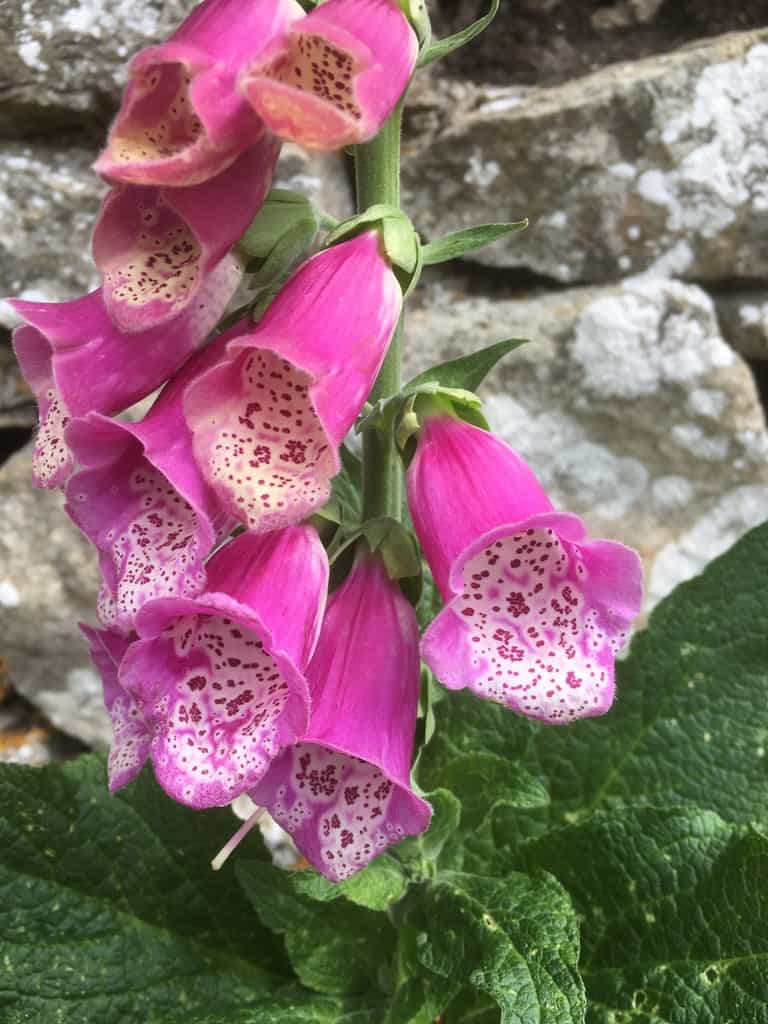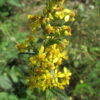Foxglove (Digitalis purpurea)
Flowers: Mid summer. Height: Up to 180cm (70in).
The Latin name Digitalis comes from the word digitanus, meaning finger, possibly because a finger could fit inside the thimble-shaped flowers. Foxglove is an ancient name that goes back to at least the time of Edward III (1327-1377) and it has many other names including Witch’s Gloves, Bloody Bells and Fairy Thimbles. It was called Cow-flop and Dead Man’s Bells, perhaps to indicate the plant’s poisonous qualities. In Christian traditions, the plant is associated with the Virgin Mary and called Our Lady’s Gloves.
Medicinal: It was used (with care) to treat heart problems, the kidneys and various urinary conditions, abscesses, boils, headaches, paralysis, stomach ulcers and open wounds. Bruising the leaves and binding them around old sores would help to cleanse, dry and heal them. However, overdosing could result in vomiting, diarrhoea, delirium and death.
Magic & Myth: Foxglove could be derived from ‘Folks Glove’ meaning the gloves of the ‘Folk’, who to our 14th century ancestors were the fairies. There is a legend which says that the fairies gave the flower to foxes to wear to muffle their footsteps when being hunted. It may also have come from the Anglo-Saxon word foxes-gleow meaning ‘a ring of bells’, their sound being a spell of protection against hunters and hounds. A medieval potion made from Foxglove was said to be able to “break a faery spell” and “restore changelings to true children”. Medieval witches used this plant for creating death potions.
Doctrine of Signatures: Foxglove flowers were supposed to look like an animal’s open mouth so this meant it must have some medicinal value in the treatment of injuries of the mouth and throat. The speckles in the mouth of the flower were seen as symbolic of inflammation of the throat.



